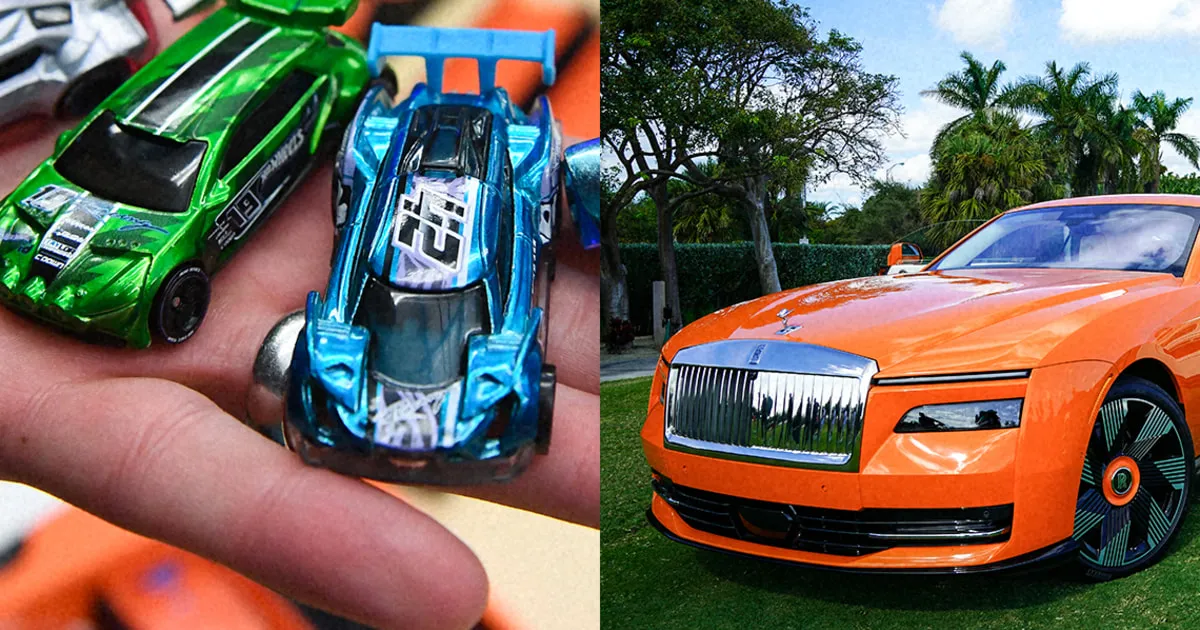
Luxury British carmakers such as Rolls-Royce, Range Rover, and Aston Martin are set to benefit from a significant tariff reduction as part of a recent trade agreement announced by President Donald Trump. This agreement will lower the tariff on British cars from 27.5% to 10%. In contrast, Trump has maintained his stance on imposing steep tariffs on toys, particularly targeting popular toymaker Mattel.
During his announcement, Trump revealed the new tariff rate for British luxury vehicles while reiterating his commitment to keep high tariffs on Mattel products, even if the company shifts production out of China. Currently, about 40% of Mattel's toy production occurs in China. CEO Ynon Kreiz mentioned that the company has been exploring alternatives for its manufacturing footprint, but he does not foresee a shift to the U.S. “That’s OK, let him go, and we’ll put a 100% tariff on his toys, and he won’t sell one toy in the United States, and that’s their biggest market,” Trump stated from the Oval Office.
Trump justified the reduced tariff for Rolls-Royce by emphasizing that these luxury cars are not manufactured in the U.S. He noted that Rolls-Royce produces a limited quantity of high-end vehicles, which sets them apart from larger automobile manufacturers. Other luxury cars from the U.K., including Land Rovers and Jaguars, will also enjoy this tariff exemption, despite exporting a greater number of vehicles to the U.S. compared to Rolls-Royce. “We took it from 25 to 10 on Rolls-Royce, because Rolls-Royce is not going to be built here. I wouldn't even ask them to do that,” Trump explained.
Mattel’s CEO Kreiz highlighted the company's ongoing efforts to diversify its supply chain over the past seven years. He stated, “where necessary, we will be taking pricing action in the U.S.” However, he does not anticipate relocating manufacturing to the United States, citing efficiency and productivity as primary reasons for continuing production in other countries. The toy industry in the United States is heavily dependent on imports from China, with the Commerce Department estimating that as much as 75% of toy products sold in the U.S. come from China.
Trump has downplayed the repercussions of price hikes on children's products manufactured in China, including toys and strollers. Despite these concerns, Treasury Secretary Scott Bessent mentioned that exemptions for baby products are currently being considered. The President has imposed a staggering 145% tariff on all imports from China, prompting some companies to halt shipments or contemplate raising prices significantly. “When you say strollers are going up, what kind of a thing? I’m saying that gasoline is going down,” Trump remarked during an interview on NBC’s Meet the Press.
As the situation develops, the tariff reprieve for luxury British carmakers signifies a strategic move in international trade relations, while the toy industry continues to grapple with the implications of high tariffs on its supply chain. The balance between protecting domestic interests and maintaining affordable prices for consumers remains a contentious issue in the ongoing trade discussions.